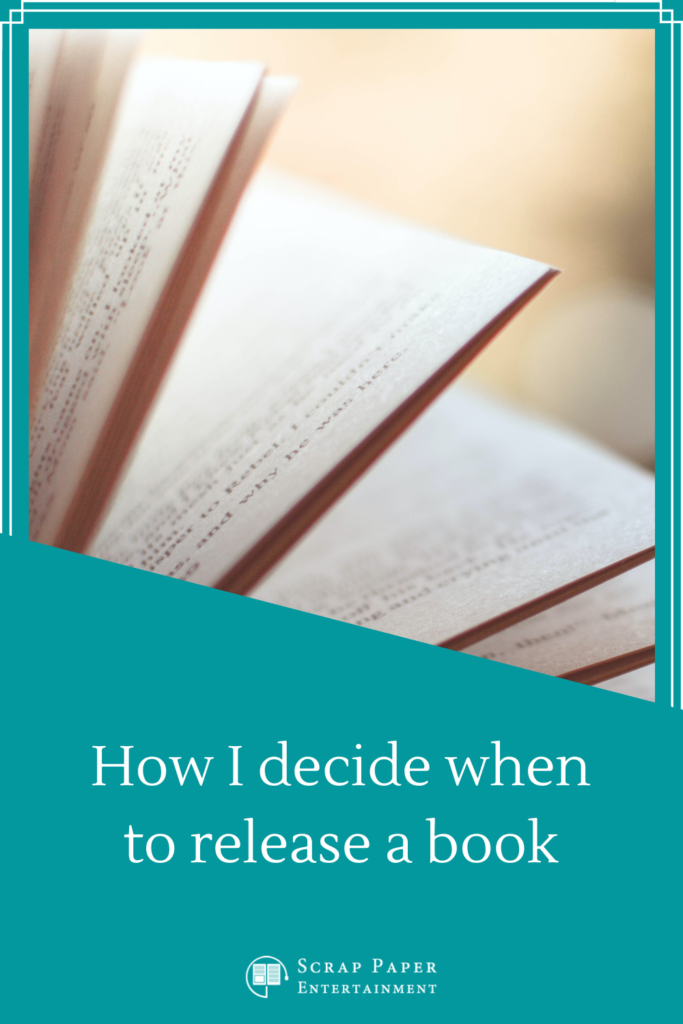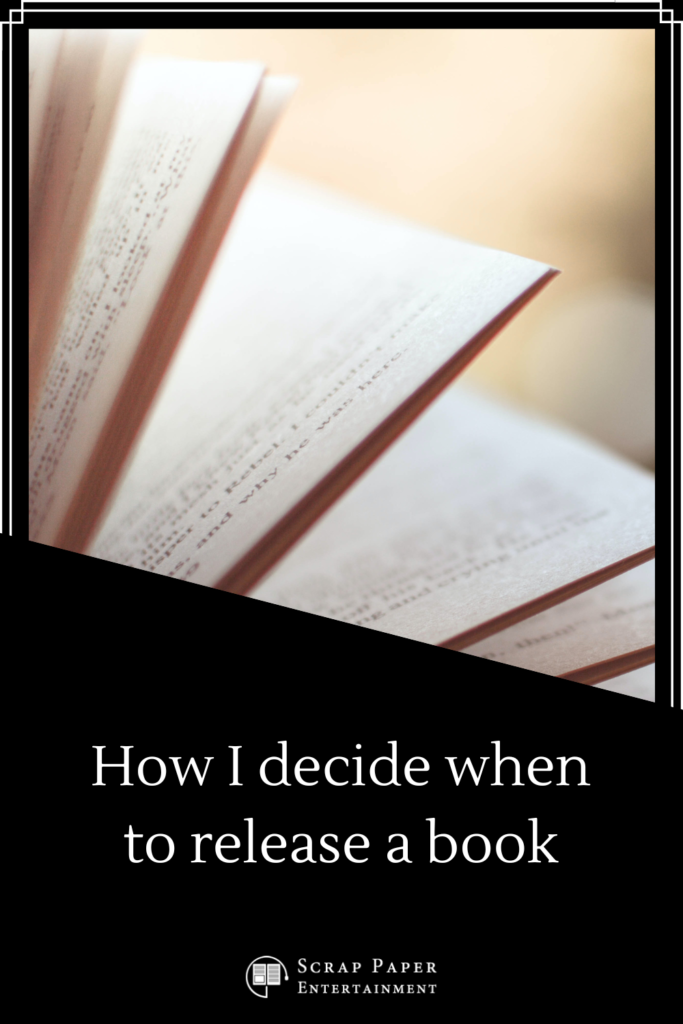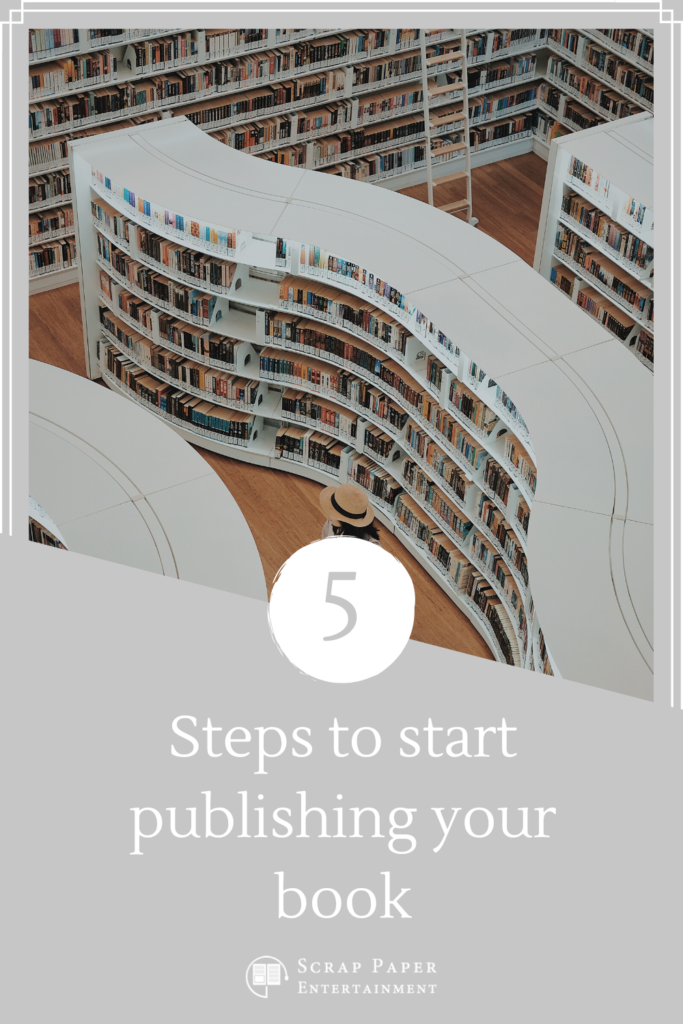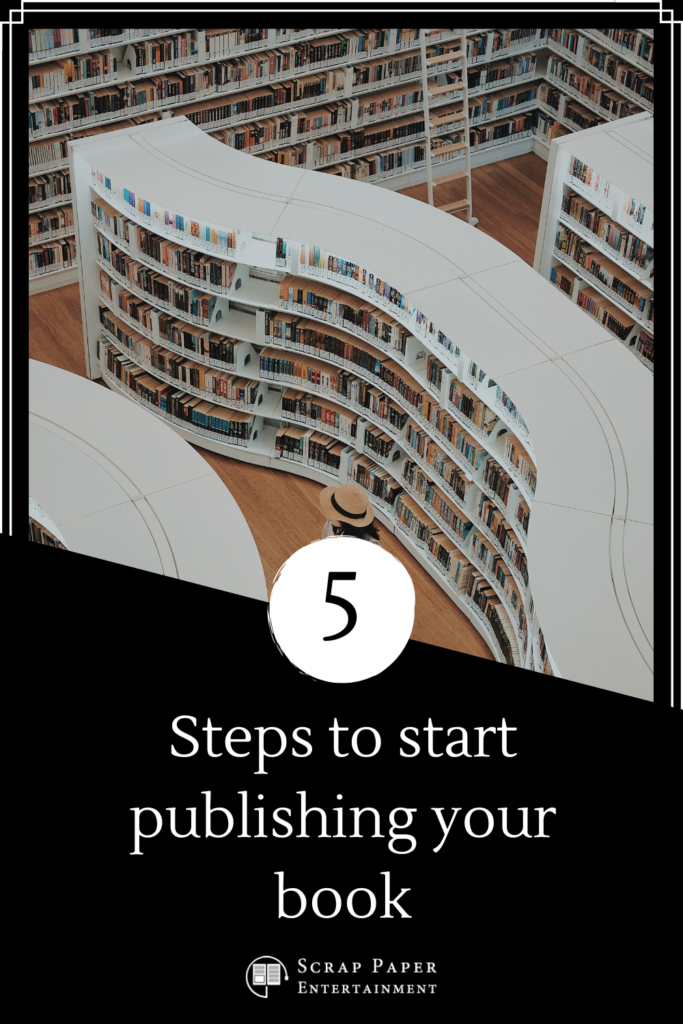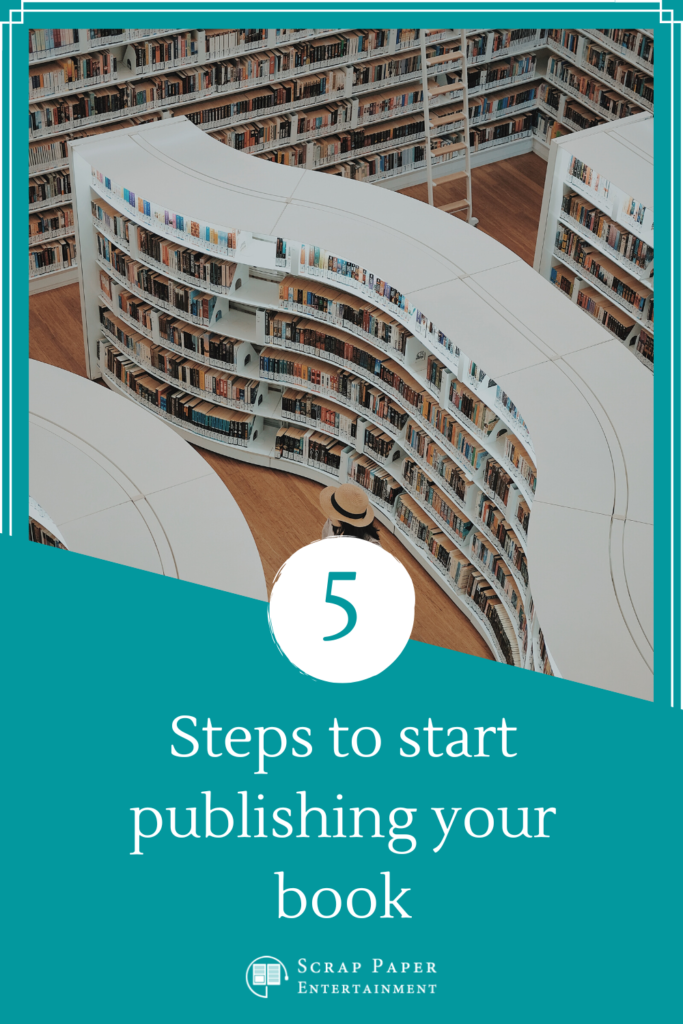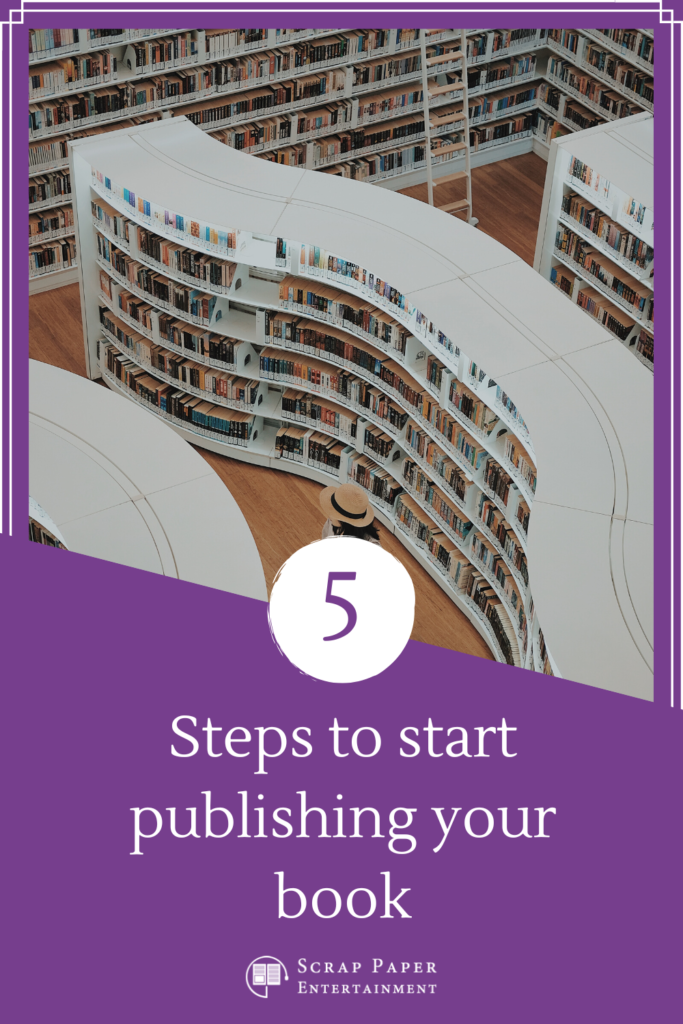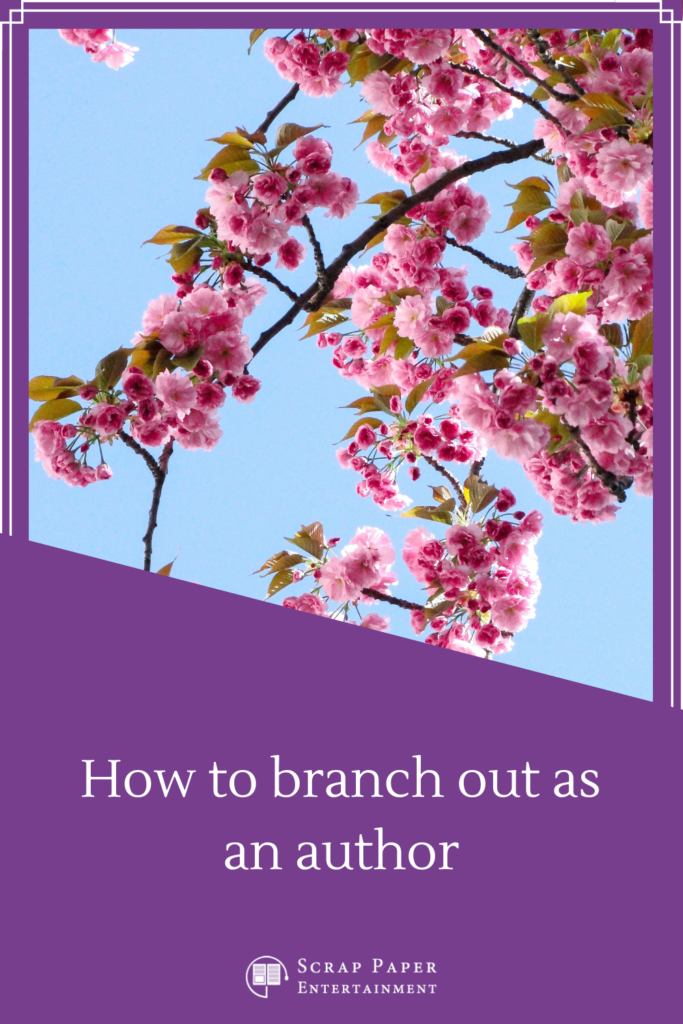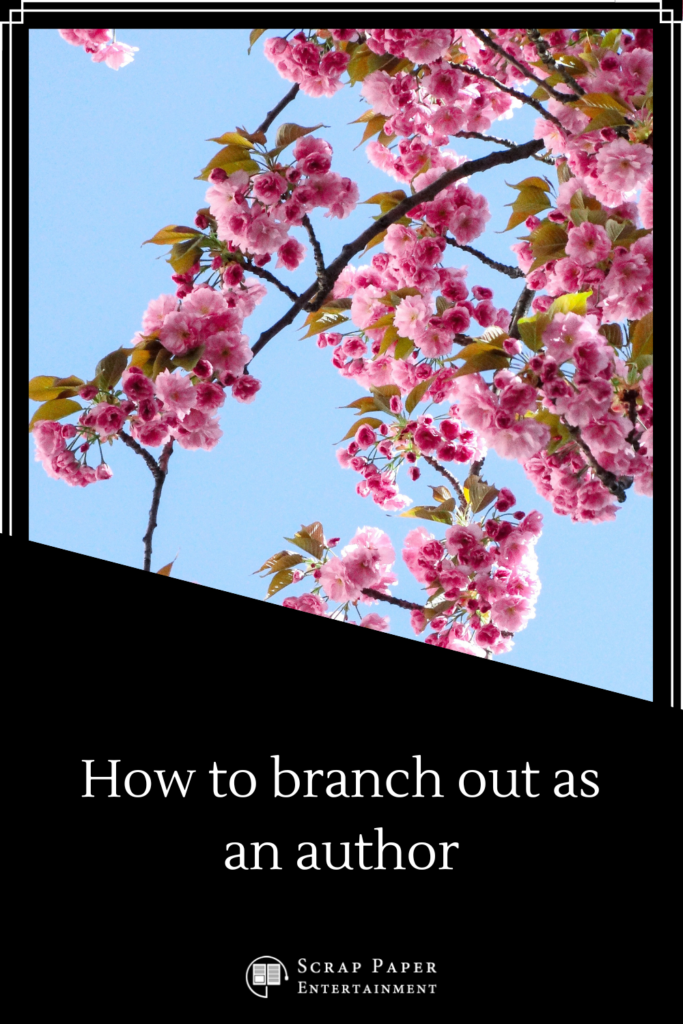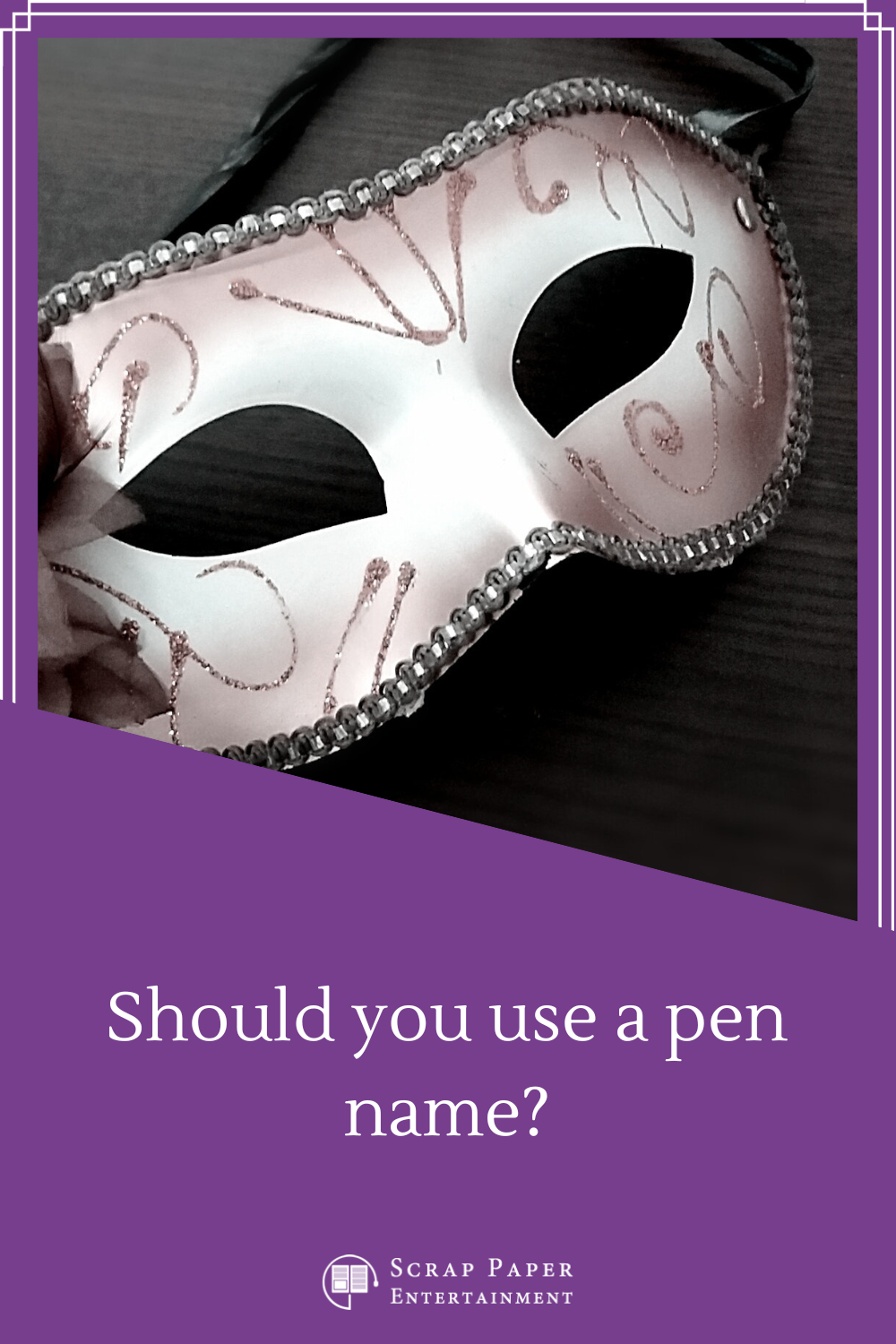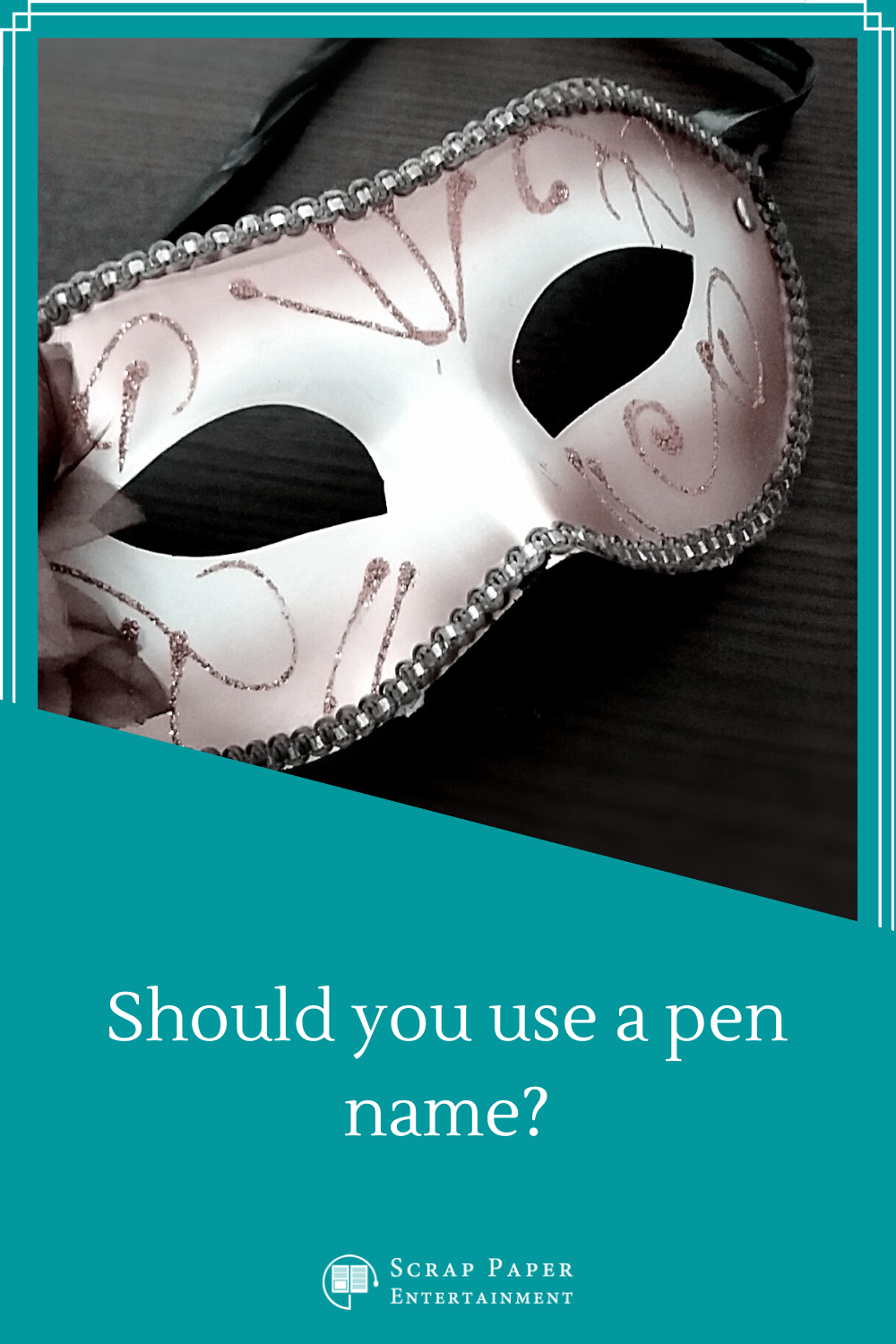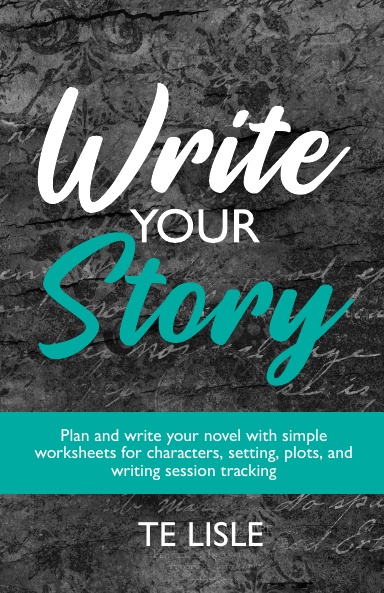It’s been ages since I’ve been able to write again, but I’ve finally gotten back into it of late! It’s a lot slower than before, but it’s been so great writing again. But with the book starting to come together, in the back of my mind I am thinking about what comes next.
Publishing.
This is not an announcement of when the book is coming out, but it is a look at how I schedule those releases so if you’re curious about when you can see the next release, or you want some guidance on how to schedule your own book release, this is for you.
Finish the series
This is mostly a me thing, but I like to have the first draft of the whole project done before I start to think about release dates. I am terrified of not hitting a deadline! Or finding out at some point that I need to completely revise something in an early book to make sure the ending goes according to plan! So I find finishing the whole thing first helps ease my nerves.
Wait a month
I have started to set my projects aside for a month before I start the rewriting process. I find this ensures that I can come back to it with not enough memories of what I was trying to do to make it good. If I read through it and I don’t understand it, then I know it’s going to need a major rewrite. If I come back and it still feels like it all works pretty well, then I know it won’t take too long to get to a state where I am comfortable showing someone else.
Plan the editing
I have a pretty good understanding of how long a rewrite is going to take, so from there I can add an extra three months as the earliest release date for the first book. This gives me time to coordinate editing with second and third and fourth sets of eyes if need be, as well as gives me time to figure out all of the files and get everything ready.
Release planning
Because I’m usually working on a whole series at once and preparing it for release, I’ll often try to make sure those releases are spaced out over a long enough time to get another series done. In the past, this has been about a year. In the case of Cloned Evil, I did delay the release of the first book for a little longer, just so that I could get all of the books released over the one year.
I do give the dates some weight in terms of significance. For example, I like April 4th as a release because that was the date I published my first ever story. October 25th is also a favourite because, well, birthday celebrations are always great with a book release! But for the most part, it’s just trying to figure out how to best space out the releases in a way that makes sense and gives me time to get the next series ready for release for the next year.
And, of course, that’s probably going to change because writing is a lot slower for me now. But that’s how I did it for the last few releases! Let me know what you think, or if you have any of your own strategies for scheduling your books.

